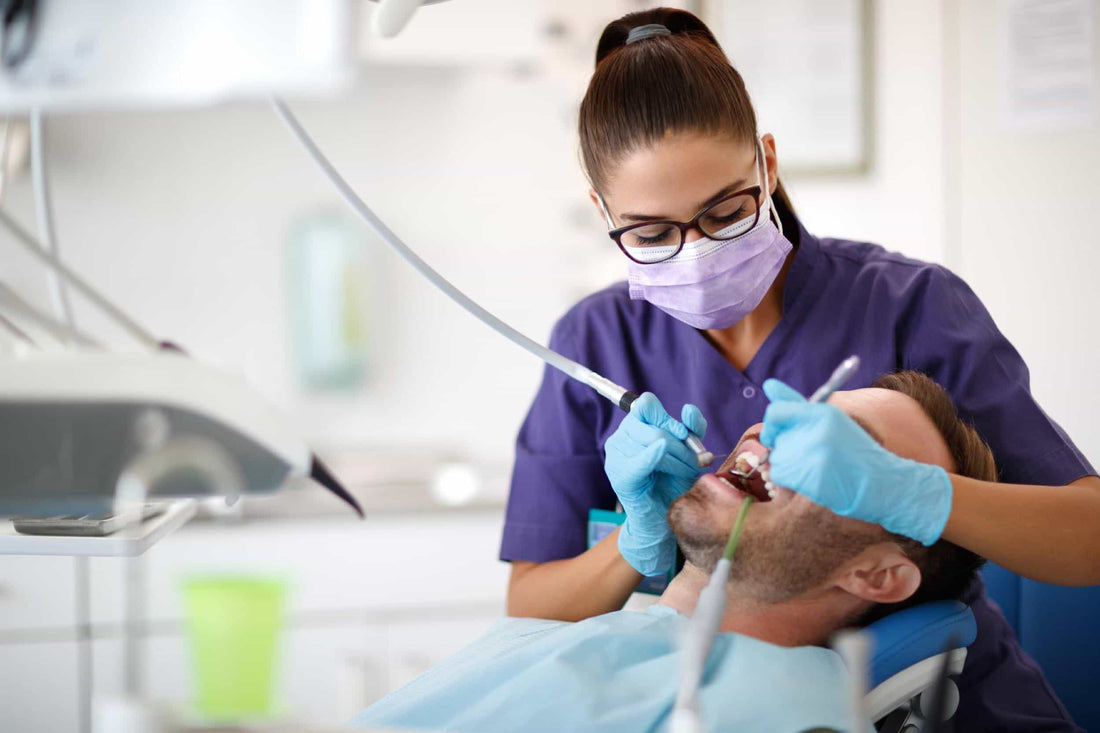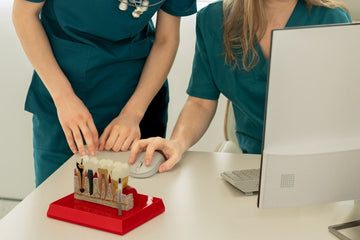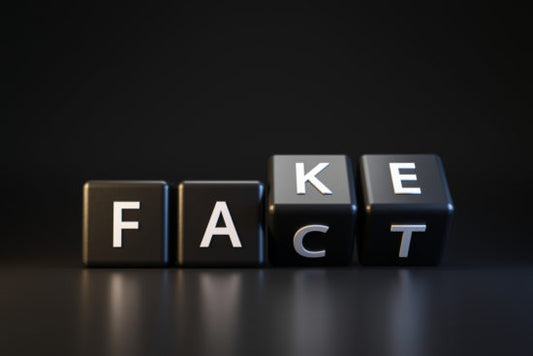How Often Should You Have a Dental Cleaning? Our Recommendation

We’re always told that brushing, flossing and using mouthwash twice a day is essential for a healthy mouth and teeth — and that’s not wrong.
But what about professional cleans? You may be confident that sticking to that regime is good enough, however, there are hard-to-reach places that only professionals can get to.
Although it’s recommended to have regular cleaning check-ups from a qualified hygienist, how often will depend on a variety of factors?
Enlighten's CEO and dentist, Sanjay Patel tells all about professional cleans, why they’re important and what’s involved.
Why is regular cleaning recommended?
Regular cleaning by an oral care professional is highly recommended for one key reason — they can get to all the places you can’t reach.
In addition to this, there are other reasons, including:
-Eliminating plaque and tartar: The buildup of plaque and tartar can contribute to gum disease, cavities, and even tooth loss. Routine dental cleanings effectively remove this buildup, helping to prevent these issues.
-Teeth polishing: During cleanings, your teeth are also polished to remove surface stains, giving them a brighter, refreshed appearance.
-Gum disease screening: During your cleaning, your dentist checks for early signs of gum disease. Detecting it in its early stages helps to stop it from worsening, reducing the risk of tooth loss.
What’s involved in professional teeth cleaning?
To avoid nerves and being caught by surprise, here’s what you can expect from your professional dentist's clean.
1. Initial Examination
Typically, a dental hygienist will handle your teeth cleaning. Before starting, they conduct a full check-up on your mouth, using a small mirror to look over your teeth and gums for signs of issues like gingivitis or other concerns. If something serious is noticed, they might call in the dentist to ensure it’s safe to proceed.
2. Clearing Plaque and Tartar
With the help of the mirror, the hygienist uses a scaler to carefully scrape away plaque and tartar from around your gums and between teeth. The scraping sound is normal. The more tartar you have, the more time this process may take. Since only a professional can remove hardened tartar, keeping up with brushing and flossing at home can help limit buildup.
3. Polishing with Dental paste
Once your teeth are free of tartar, the hygienist will polish them using an electric brush with a gritty toothpaste that provides a thorough clean. This paste has a texture that buffs the teeth, which is safe to have done by a professional a couple of times a year. However, never use similar abrasive products at home when tooth brushing.
4. Expert Flossing Session
Even if you’re a regular flosser, a professional flossing session reaches deeper between teeth and identifies areas that might bleed due to buildup. This step also helps clear away any remnants of plaque or toothpaste from earlier stages.
5. Rinse
After flossing, you’ll rinse out any remaining particles or debris with a fluoride rinse, which the hygienist provides.
6. Fluoride Application
Sometimes a final step in the cleaning process is a fluoride treatment, designed to strengthen teeth and prevent cavities for several months. You can usually pick a flavour, and then the hygienist applies a foamy gel or paste in a mouthpiece that sits on your teeth for a minute. Sometimes, fluoride varnish is brushed on, hardening quickly with saliva, so you can eat or drink right after.
How often should you have a dental cleaning?
The exact amount of time between anyone going between professional cleans ultimately depends on the person and their current dental health.
However, as a general rule, you should always aim to attend a professional dental cleaning every six months.
Depending on your oral health, your hygienist may recommend you come every 6 months if you’re really on top of your oral healthcare routine.
If you’re not or are suffering symptoms of prolonged tooth damage, dentists or hygienists may recommend more frequent visits – commonly once every three months or less.
Certain lifestyle factors can affect how often you need dental cleaning. For example, you’re likely to need more frequent appointments if you:
-wear dentures or a brace
-use fluoride-free toothpaste
-brush and floss less than twice a day
-eat lots of sugary foods
People with ongoing health complications — like diabetes and cardiovascular disease — may find they need to visit their hygienist more frequently.
Things like medication can also affect your oral health. Your hygienist will be able to help you detect problems, talk them through and help you combat them with effective cleaning treatments before more severe problems occur.
Why choose Enlighten?
Not happy with your smile and looking for a solution to boost your confidence?
Enlighten's advanced teeth-whitening systems offer cutting-edge, minimally invasive treatments that deliver impressive results.
You can easily find a dentist near you by entering your postcode. Call one, get booked for an appointment and start your teeth whitening treatment.
For tips on achieving outstanding oral health and details about our products, check out our guides.
FAQs
1. Is a Hygienist Worth it?
Yes, a hygienist is worth it.
There are many hard-to-reach areas in your mouth that only a trained professional can access safely without risking damage to delicate teeth and gums.
Allowing deposits of debris, plaque and tartar to accumulate without getting it professionally treated can create serious problems down the line for your oral health — so it’s worth paying them a visit.
2. What is the NHS Dental 2-Year Rule?
The NHS recommends you do not go more than two years without a checkup with a dentist, dental professional or hygienist. In two years, many things can happen to your teeth that can easily be treated early if spotted.
3. Do Dentists Deregister You if You Don’t Go?
Although dentists do have a duty of care and can’t leave your teeth in a bad way, if you don’t comply with the treatment or regularly miss appointments, you might find yourself de-registered.
This is because dentists and hygienists need to free up the space for people in urgent need.
› DIG DEEPER ‹
![]()
Learn more about the Enlighten Teeth Whitening System HERE.
And to find an Enlighten whitening expert near you, hit the link below.
FIND A DENTIST

Or if it’s mini smile makeovers you want to dig deeper into, then give it a click right HERE.
_________________________________________________________________________






